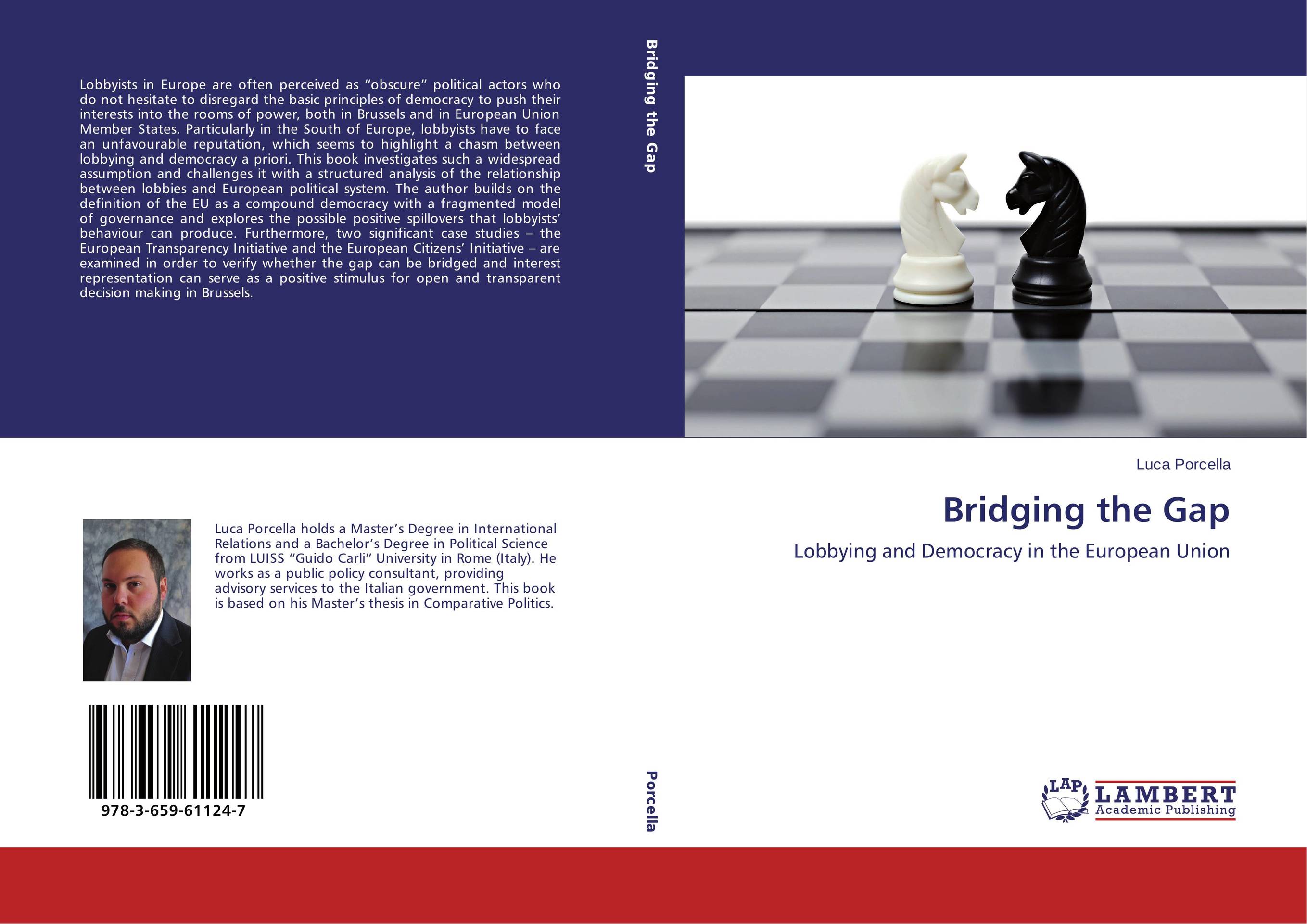| Поиск по каталогу |
|
(строгое соответствие)
|
- Профессиональная
- Научно-популярная
- Художественная
- Публицистика
- Детская
- Искусство
- Хобби, семья, дом
- Спорт
- Путеводители
- Блокноты, тетради, открытки
Bridging the Gap. Lobbying and Democracy in the European Union

В наличии
| Местонахождение: Алматы | Состояние экземпляра: новый |

Бумажная
версия
версия
Автор: Luca Porcella
ISBN: 9783659611247
Год издания: 2014
Формат книги: 60×90/16 (145×215 мм)
Количество страниц: 256
Издательство: LAP LAMBERT Academic Publishing
Цена: 37915 тг
Положить в корзину
| Способы доставки в город Алматы * комплектация (срок до отгрузки) не более 2 рабочих дней |
| Самовывоз из города Алматы (пункты самовывоза партнёра CDEK) |
| Курьерская доставка CDEK из города Москва |
| Доставка Почтой России из города Москва |
Аннотация: Lobbyists in Europe are often perceived as “obscure” political actors who do not hesitate to disregard the basic principles of democracy to push their interests into the rooms of power, both in Brussels and in European Union Member States. Particularly in the South of Europe, lobbyists have to face an unfavourable reputation, which seems to highlight a chasm between lobbying and democracy a priori. This book investigates such a widespread assumption and challenges it with a structured analysis of the relationship between lobbies and European political system. The author builds on the definition of the EU as a compound democracy with a fragmented model of governance and explores the possible positive spillovers that lobbyists’ behaviour can produce. Furthermore, two significant case studies – the European Transparency Initiative and the European Citizens’ Initiative – are examined in order to verify whether the gap can be bridged and interest representation can serve as a positive stimulus for open and transparent decision making in Brussels.
Ключевые слова: Transparency, democracy, European Union, Lobbying, Brussels, Interest representation



